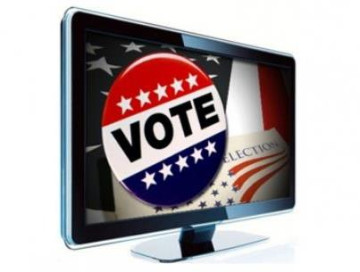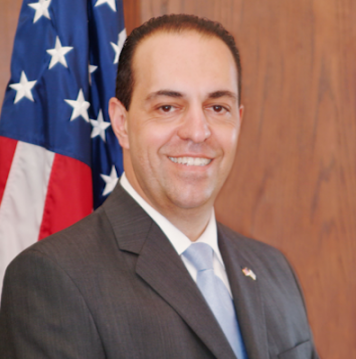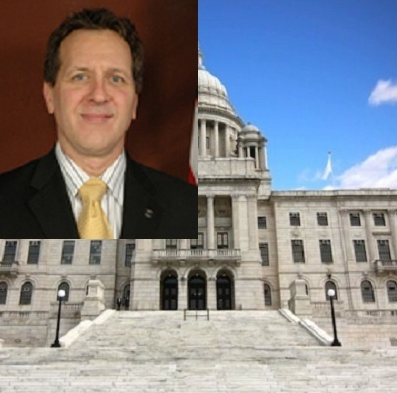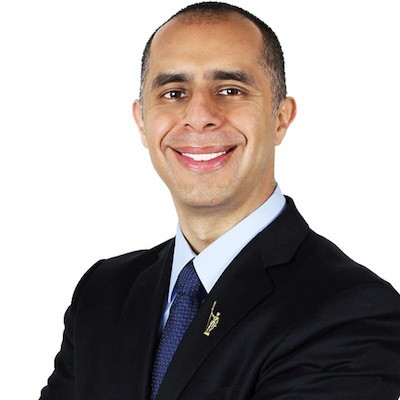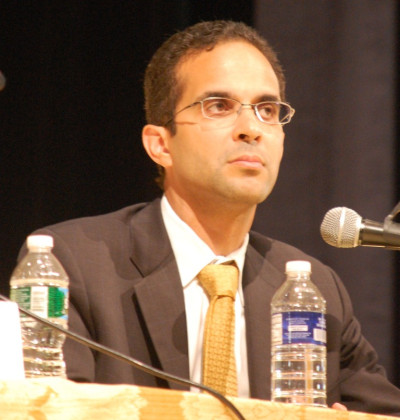Matt Fecteau: Let’s Talk About Online Voting
Saturday, May 23, 2015
The United States should discuss, and debate whether online voting is feasible.
For all the hoopla of America being the most innovative place in the world, and the hub of technological innovation, we seem all too capable of putting up arbitrary barriers, and discounting the possibility of online voting. As a result, to this day, we have yet to design a secure, anonymous, Constitutional method of voting for the 21st century.
Whenever I talk about online voting, a person typically looks at me cross eyed. It cannot be done. The system will be rigged. Corruption will run rampant. The problems are endless, they say. Online voting is just impossible others say.
GET THE LATEST BREAKING NEWS HERE -- SIGN UP FOR GOLOCAL FREE DAILY EBLASTWe seem more than willing to strike it down as improbable. Is it? By 2020, Britain’s Digital Democracy Commission recommends secure, anonymous online voting should be an option for all its voters. While the United States fails to even look into it as a possibility – no major debate has taken place or legislation been introduced in Congress -- Britain recommends online voting.
Other countries have dabbled with online voting. Estonia began voting online back in 2005. Canada began voting online as early as the 1990s. In Canada, with the advent of online voting and expanded voting window, early voting surged to 300%. Sweden, Latvia and Switzerland also have a history of utilizing online voting.
Even the US has some history with online voting. In 2008, Arizona allowed military members, and some citizens to vote via a secure website. In 2010, West Virginia successfully implemented online voting for overseas military personnel.
Let’s not forget, almost every transaction is done online, including paying taxes, which deal with sensitive information. Trillions of dollars are moved each day with the click of a mouse button.
Why is online voting so controversial?
Much of it has to do with the power of the government. Americans, especially the southern states, have a long tradition of concern over federal government overreach. Any type of online voting would likely involve massive federal government oversight, and that is something that state rights conservatives traditionally oppose.
Another concern, Americans remain fearful of voter manipulation. Well, election results are already being manipulated overtly through gerrymandering and oppressive Voter ID laws. With our current system, it can easily be manipulated with phony mail ballots, flash drives, though remains extremely rare.
Security flaws and vulnerabilities raise a number of concerns. While there is no documented electronic attack on any online voting systems, some potential exists for hackers to manipulate election results.
This is a logical concern. However, this could be remedied by issuing an electric or printed receipt to a voter, issue a pin number – such as in Estonia – and make it easy to validate their specific vote.
Until this time comes, de facto, Americans continue to defend a method of voting that depresses voter turnout. We seem content on defending a cumbersome, obsolete method of voting on Tuesday because “we’ve always done it that way.” As a result, voters sometimes stand in line for hours to vote, if they even have time.
Online voting has some distinct advantages. It becomes much easier for senior citizens, the disabled, overseas military members, and citizens traveling aboard to vote. In Iraq, my platoon oversaw military operations that picked up mail ballots from across Iraq so they could make it back in time to count for the 2008 Presidential election. We risked our lives for so people could vote. Online voting would make it easier on everyone especially our overseas military.
Online voting makes economic sense. While cost estimates vary, the federal, state, and municipal governments spend hundreds of millions on Presidential Elections every four years. The respective governments’ expense includes paying for employees, maintaining equipment, purchasing new equipment, and calculating the results of the respective election. Online voting would likely lessen this expense.
Even with all these reasons, there will still be some apprehension about online voting. So I recommend a happy medium, setting up a Congressional select or standing committee to look for ways to expand voting utilizing the latest technology, and more importantly, investigate whether online voting is feasible.
Online voting may or may not be a possibility in the future, but we aren’t going to know unless we talk about it. We owe it to our democracy.
Matt Fecteau ([email protected]), of Pawtucket, lost to U.S. Rep. David Cicilline in last year’s Democratic primary. He was a White House national security intern and captain in the US Army with two tours to Iraq. Twitter: @MatthewFecteau
Related Slideshow: See How Much Each Candidate Spent Per Vote
Below is a ranking of how much candidates for state office and Providence mayor spent per vote. Only candidates who had competitive primaries are listed. The cost per vote was calculated by taking total campaign spending since 2013 and dividing by the number of votes received in the primary. Data was obtained from the Rhode Island Board of Elections. Candidates are listed in order of lowest spending per vote to highest.
Related Articles
- Guest MINDSETTER™ Matt Fecteau: al Qaeda’s Perilous Evolution
- Guest MINDSETTER™ Matt Fecteau: RI Campaign Tales and Trails 2014
- Guest MINDSETTER™ Matt Fecteau: Iraq, Bush Broke It, We Own it
- Guest MINDSETTER™ Matt Fecteau: The Curious Case of Bowe Bergdahl
- Matt Fecteau to Kick Off Campaign for Congress Sunday
- Guest MINDSETTER™ Matt Fecteau: In Cianci We Trust
- Guest MINDSETTER™ Matt Fecteau: The Cold War Ended, So Should the Embargo
- Matt Fecteau: Why is Election Day on a Tuesday?
- Matt Fecteau: Rhode Island, Damn it, Just Vote
- Guest MINDSETTER™ Matt Fecteau: Pizza Psychosis
- Guest MINDSETTER™ Matt Fecteau: Drones, a Necessary, Justifiable Evil
- Guest MINDSETTER™ Matt Fecteau: The Islamic State: Saudi Arabia’s Baby
- Matt Fecteau: Should Boston Bomber Tsarnaev be Condemned to Die?


